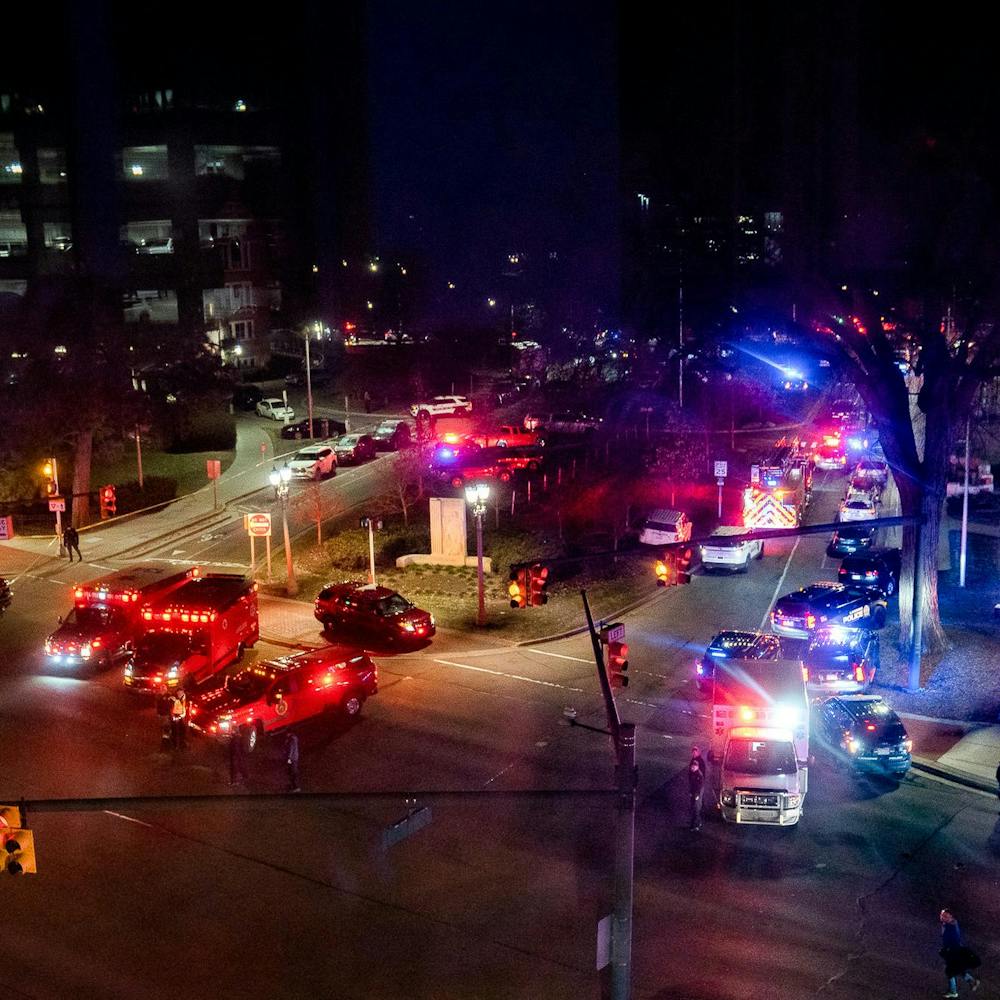This November, Michigan voters will decide some of the most controversial topics in the state.
They'll have to contemplate whether or not mourning doves should be hunted, whether or not to limit eminent domain, if race and gender should be used in college admissions and whether or not conservation funds that can't be used for other purposes should be established.
Those issues, and possibly others, will be decided by ballot initiatives, a form of policy making that puts decisions directly in the hands of voters.
Julie Baker, campaign director for the Committee to Restore the Dove Shooting Ban — the organization responsible for orchestrating an anti-dove hunting ballot initiative, said it was necessary to use an initiative because legislators weren't adequately responding to complaints after a public act was passed that established a hunting season for mourning doves.
"If politicians won't represent us, then we'll represent ourselves," Baker said. "The Michigan Constitution protects the people's right to vote on these important issues."
There are different forms of initiatives — some amend the Michigan Constitution, such as 2004's Proposal 2, which established marriage as only between a man and a woman. Others, like the anti-dove hunting initiative, are referendums meant to overturn a previous public act, and some are placed on the ballot after approval by the Michigan Legislature.
Each type requires the signatures of registered voters before it is certified by the Board of State Canvassers before finally making it to the ballot.
For November's general election, there are four initiatives that are guaranteed to be there, but several more, such as one that would legalize and regulate marijuana and another that would create a unicameral Legislature, could be approved before November.
Although this year's ballot won't have the most initiatives in history it will still feature some controversial issues, Silfven said.
Not everyone supports the use of ballot initiatives to get an issue passed, however.
Jeffrey Montgomery, executive director of the Triangle Foundation, said ballot initiatives, such as Proposal 2, can be harmful and used for divisive purposes just to bring out voters.
"Generally they are not good things because it seems like when people don't get their way in the state Legislature, they turn to ballot initiatives," Montgomery said.
AFFIRMATIVE ACTION
The Michigan Civil Rights Initiative, or MCRI, has generated heated controversy since its inception. It aims to amend the state constitution to prohibit the use of race, sex, ethnicity or national origin in government hiring and at public universities.
It would prohibit affirmative action programs at state colleges, including admissions, and in state hiring practices.
It took a Michigan Court of Appeals intervention to get the MCRI on the ballot after the State Board of Canvassers failed to certify the signatures.
"What you see with the MCRI is unprecedented," said Luke Massie, national co-chairperson of the Coalition to Defend Affirmative Action, Integration & Immigrant Rights And Fight for Equality By Any Means Necessary, or BAMN. "You have a ballot initiative headed toward the ballot on the basis of overwhelming racially targeted voter fraud."
Members of BAMN and some who signed the petition claimed they were misled by the initiative's wording. The Michigan Department of Civil Rights held hearings around the state, and some people said they were misled by those canvassing for signatures.
Massie said the language and the title of the initiative confused voters who didn't understand that it could ban affirmative action programs.
Passing the MCRI would put minorities at a greater disadvantage because it has the potential to prohibit some college recruitment efforts that target minorities, Massie said.
"It makes the institutional inequalities in society dramatically worse, and inequality between men and women will get worse," Massie said.
But supporters of the MCRI say the initiative will make government hiring and higher education much more fair by not looking at factors such as race and gender.
"It's important for citizens in a democracy to know that all citizens are treated equally, and no one is given special preference because of the place their grandfather came from or their sex or color of their skin," said Carl Cohen, a member of the MCRI steering committee and philosophy professor at the University of Michigan. "It protects the fairness we always thought was part of the American system."
Cohen said preference programs hurt minorities because they hurt their credibility.
"Groups given preference are put under a cloud, and their achievements are suspected because people say they got there because of color," Cohen said.
Accusations that voters were misled about the initiative's intent are unfounded, Cohen said, adding that the language was clear and understandable.
"Michigan citizens are smart enough to read that plain language and understand it," Cohen said. "We know the people soliciting signatures maintained the highest standards, and the notion that people were fooled is absurd."
PROPERTY BATTLE
Senate Joint Resolution E is meant to change the eminent domain laws — a city or state government's right to take private property for public or private use, such as for roads or developments.
The U.S. and Michigan Supreme Courts have both weighed in on eminent domain, offering differing opinions on the issue. In 2005, the high court ruled that a city government could force owners to sell their property for the city to use in a redevelopment plan.
The initiative was passed as a Senate resolution by both the House and the Senate.
Chad Wing, chief of staff for state Sen. Tony Stamos, R-Midland, sponsor of the bill that became the ballot initiative, said it would ban state and local governments from taking private property for private use.
That would mean cities could be prohibited from redeveloping private land to build businesses they claim will create jobs or bring money to the community.
"The right of property is one of the rights the founding fathers founded this country on and needs to be addressed once and for all in Michigan," Wing said.
East Lansing City Manager Ted Staton said eminent domain can be a useful tool for cities when planning construction projects for the community that might require the demolition of private property.
A city faced with a property owner who won't sell might have to build around that property, making construction more expensive for taxpayers and less efficient overall, Staton said.
DOVE DILEMMA
The Dove Hunting Referendum asks voters whether a public act passed in 2004 that established a hunting season for mourning doves should be changed or not. Previously, hunting mourning doves was illegal.
Julie Baker, from the Committee to Restore the Dove Shooting Ban, said the hunting season established for the doves goes against the historical protection of the birds.
"The mourning dove is a big part of Michigan's traditional values, and they have significant economic value as live song birds," Baker said. "There's no reason to shoot them — they're not overpopulated, they're not a viable human food source and they're not dangerous animals."
For people who believe there should be a hunting season for the bird, the question is: "Why shouldn't they be hunted?" said Rob Sexton, vice president for government affairs at the U.S. Sportsmen's Alliance.
"Dove hunting causes no harm to species' health," Sexton said. "Their populations are good, and it's a great way to introduce people to hunting." Sexton said dove hunting had only been kept illegal because groups had worked to keep it that way, and hunters in many other states are allowed to hunt the birds.
"It's a hunted species in the United States, and hunting them is enjoyed all the way around the world," Sexton said. "Michigan hunters need to be afforded the same rights as hunters in other states."
CONSERVATION FUNDS
House Joint Resolution Z might be the most confusing initiative voters will face.
It asks if there should be constitutional protection given to funds so they are earmarked only for environmental and outdoor use. The money going into the funds would come mostly from the fees people pay for licenses to hunt, fish and participate in other outdoor activities.
These funds would be set aside and couldn't be touched by the state government to fill in gaps in the budget or for other purposes, said Donna Stine, assistant director of policy for the Michigan Conservation Clubs.
In the past, money earned from things such as hunting, fishing and boating licenses went into specific funds that could go toward the general fund in every fiscal year's budget, but this initiative gives these funds constitutional protection.
Kate Madigan, deputy policy director for the Michigan Environmental Council, said it's important the funds, which would go toward environmental protection, are secure in difficult economic times.
"It's important that there is adequate funding to protect wildlife and waterways and for other funds that maintain our state lands," Madigan said.






